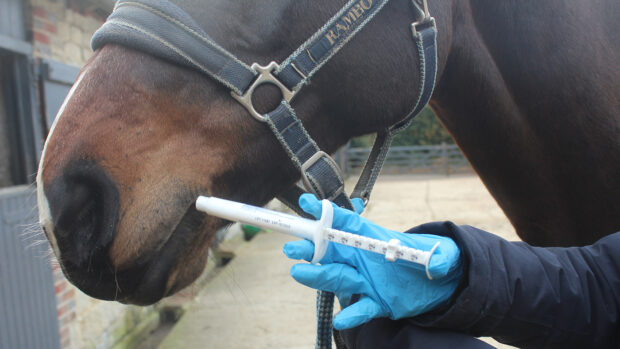Top vets are concerned that horse owners still do not understand that wormer resistance is an increasingly serious health threat.
In 2010 the British Veterinary Association (BVA) launched a campaign telling owners that, in order to slow resistance, all worming treatments should be based on veterinary diagnosis.
But a questionnaire-based study published in last month’s Equine Veterinary Journal (EVJ) showed that many owners are still not aware of the issue.
The investigation, which was carried out in Scotland, showed that 86% of owners “were unaware of the presence of resistance on their yard”.
Professor Celia Marr, editor of the EVJ, said: “Resistance to wormers is a major health concern and owners need to be made more aware of the issue.”
Some owners are reluctant to stop using a traditional (interval) worming plan. An H&H forum member posted: “I follow a programme, and it works for us [ie 4 times a year]. Many people use egg counts to check which wormer is needed, via the vet. I just like to cover all bases, as I’ve seen what not worming can do.”
Owners may soon not have the choice. H&H reported earlier this year that wormers could become prescription-only under radical new plans proposed by the BVA (news, 7 March). The proposal has been prompted by vets who are “increasingly alarmed” at the growth in resistance.
Another study, by Moredun Research Institute, on horses in southern England showed that out of 3 categories of drugs that expel worms, only 1 still has a success rate of more than 95% — those that contain ivermectin and moxidectin.
“We need to preserve these products as much as we can, there are no new wormers coming through,” said Prof Jacqueline B Matthews who helped with the study.
“Worryingly, recent research has already shown a reduction in how long these treatments are effective in keeping worm egg counts down, indicating that resistance is already growing.”
This news story was first published in Horse & Hound magazine (22 August, 2013)





